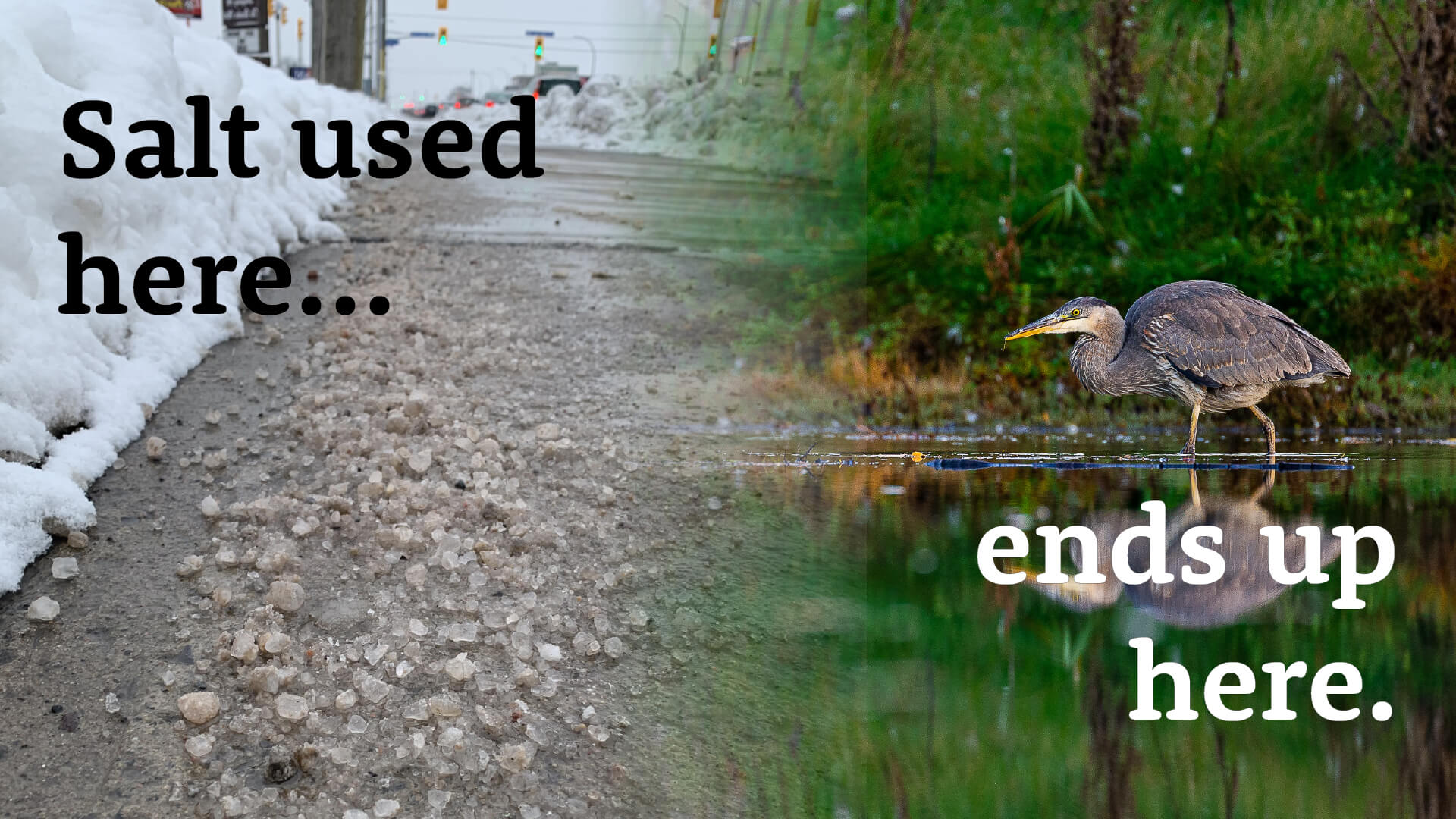Reduce your road salt footprint

Welcome to Road Salt Reduction Week!
Road Salt Reduction Week is back for 2024! We first launched this event in 2023 to share more information about the damage that road salt is doing to our ecosystems, and what you can do to limit your own road salt use.
Ottawa Riverkeeper’s community scientists continue to find alarming levels of chloride in the National Capital Region’s urban creeks and streams. Salt spread during the winter is the prime culprit. While municipalities and private companies need to tackle this issue at a large scale, there is still a lot we can all do as residents to change our culture of overreliance on road salt.
This year, we’re doubling down on ways you can reduce your household road salt use. Hop on over to our latest blog, which lays out all of our five tips for reducing your road salt use.
Learn more:
Road salt can be toxic for species living in our creeks and streams.
Ottawa Riverkeeper is monitoring chloride levels in urban waterways. In the winter, road salts are washed off paved surfaces and ultimately enter our creeks at alarming rates.
People can often use more road salt than is necessary.
Road salt can be an important safety measure, but responsible salting should look like only a few salt pieces in your bootprint. Use road salt sparingly!
We are spreading the word and making the case for less road salt.
We are sharing the results we are seeing in local creeks, and educating the public on ways to use less salt.
In a webinar on March 17th, 2021 we took a deeper look at the issue of road salt in our urban waterways, and dove into the data we are collecting, what action you can take to reduce your road salt use, and the current progress on our salt reduction training program.
Watch the recording on Youtube!
